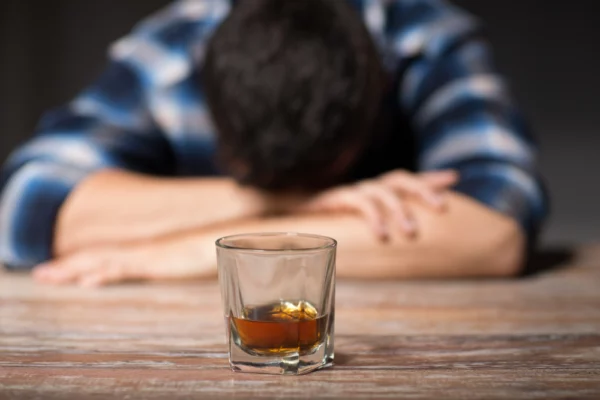Alcoholism is a non-clinical term that people use to describe a problem with alcohol abuse. The correct medical term is alcohol use disorder. Learn more about the signs, symtoms and at home alcohol detox in Los Angeles.
Alcoholism is a non-clinical term that people use to describe a problem with alcohol abuse. The correct medical term is alcohol use disorder. About 14 million American adults had an alcohol use disorder in 2017. Only 6.5 percent of them have received treatment in the past year. Understanding symptoms of alcoholism and alcohol use disorder may help you learn whether you need help.
What is Alcohol Use Disorder?
Alcohol use disorder is the clinical term used to describe someone who is addicted to alcohol. Addiction is a chronic disease of the brain that develops in response to repetitive and habitual use of mind-altering substances, such as alcohol. It is a common misconception that putting a stop to alcohol use disorder is just a matter of having the willpower to stop drinking, but in all reality, doing so is extremely difficult. An alcoholic’s cravings are so powerful that it suppresses their ability to stop the physical act of drinking. That is why alcoholics often require assistance in order to end their alcoholism. Alcoholism is actively occurring when a person cannot limit or control their drinking because they have experienced changes in their brain as a result of the disease of addiction.
Studies show that those individuals who become addicted to alcohol often have a family history of alcoholism. A family history of alcoholism is one of the leading risk factors for developing an addiction in the future. Unfortunately, alcoholism can create severe problems within all areas of a person’s life. Additional factors that can predispose a person to alcoholism include, but are not limited to, the following:
• Abandonment and neglect
• Violence in the household
• Culture of acceptance regarding alcohol abuse
• Abuse (e.g. physical, sexual, mental, and/or emotional)
Today, more than 15 million Americans are grappling with alcoholism, many of whom have experienced one or more of the above. Millions more abuse alcohol, which is different than having a clinical addiction to alcohol.

The Difference Between Alcoholism and Alcohol Abuse
It might seem like there is no difference between alcoholism and alcohol abuse, however there is a stark difference between the two. Alcoholics experience several symptoms, including but not limited to, the following:
• Inability to control how much alcohol they consume
• Continuation of alcohol use despite the consequences it produces
• Development of withdrawal symptoms when not drinking alcohol
Those who develop the disease of addiction due to repetitive alcohol use also tend to have behavioral problems that affect their wellbeing and the wellbeing of others. These behaviors can include:
• Neglecting responsibilities at home, work, or school
• Socially withdrawing from friends, family, and loved ones
• Loss of interest in previously enjoyed activities or hobbies
• Prioritizing alcohol use over everything else
Alcoholism is a disease that causes the continued abuse of alcoholism despite whatever consequences develop because of it. Those people who abuse alcohol, however, do not have the disease of alcoholism but engage in irresponsible behaviors surrounding their alcohol consumption. Some of the classic markers of alcohol abuse include the following:
• Engaging in dangerous, risky behaviors that can bring harm upon themselves or others
• Experiencing consequences at work or home as a result of their behavior while under the influence or when hungover
• Continuing to drink even if it causes problems in relationships with others
While alcoholism and alcohol abuse are different from one another, that doesn’t mean that someone who abuses alcohol cannot become an alcoholic. The differences are there but the line that separates the two is fine.
Signs and Symptoms of Alcohol Use Disorder
According to the Diagnostic and Statistical Manual of Mental Disorders (DSM-V), a person has a diagnosable alcohol use disorder if they display some or all of the symptoms listed out below:
• Drinking more heavily or for a longer period of time than they intended
• Being unable to reduce the amount of alcohol that they drink
• Experiencing illness from drinking too much
• Having cravings that make it hard to concentrate
• Having trouble maintaining daily obligations and duties because of drinking
• Continuing to consume alcohol even though it is causing problems
• Participating less frequently in activities that they once abused
• Maintaining the habit even though it contributes to health problems
• Experiencing dangerous situations as a result of consuming alcohol
• Developing a tolerance that makes them drink more in order to achieve the same sense of being under the influence
• Experiencing withdrawal symptoms when not drinking
When properly assessed by a mental health professional, the severity of one’s alcohol use disorder can be determined based on how many of these criteria a person is experiencing. The number of symptoms within a 12-month timeframe can identify if a person’s alcohol use disorder is mild, moderate, or severe:
• Mild: 2-3 symptoms
• Moderate: 4-5 symptoms
• Severe: 6+ symptoms
Alcoholism cannot be cured, but it can be treated. For some, treatment for this specific condition begins with detoxification, or “detox.”
Alcohol Withdrawal Symptoms
Alcohol detox is appropriate (and in most cases necessary) for those individuals who are physically dependent on alcohol. Being dependent on alcohol means that a person cannot just stop drinking without experiencing the onset of withdrawal symptoms. That is because the body has adjusted itself to accommodate the excessive amounts of alcohol a person consumes, so when it is suddenly no longer being consumed, the body starts to react. The most common withdrawal symptoms that people tend to experience when detoxing from alcohol include the following:
• Nausea
• Vomiting
• Loss of appetite
• Headache
• Tremors
• Anxiety
• Sweating
• Problems sleeping
On paper, these symptoms might seem tolerable, but when they are all occurring simultaneously and/or intensely, it can be easy for a person to go right back to drinking to make it all stop. That is why attempting to detox independently at home is notoriously challenging for most. Without the guidance and care of professionals, there is no one there to help a person push past the pain of withdrawal rather than give in to cravings to use.

Is Alcohol Detox Safe?
Alcohol detox can be dangerous when the appropriate medical and psychiatric care is not provided. In fact, detoxing from alcohol can be deadly if done alone. There are some withdrawal symptoms that can develop that can be life-threatening, including the following:
• Seizures
• Hyperthermia
• High blood pressure
These symptoms must be monitored and treated by a medical professional. Even if a person is not at risk for developing these serious symptoms, they can find greater comfort and have a more promising chance of recovery if they have the support of our at home detox services. Our professional staff in Los Angeles will help the patient through each step of the alcohol detox process. We create an alcohol detox plan that is tailored to the patient’s needs so that they can remain stable for the duration of their detox. We also utilize medication that has been proven to reduce withdrawal symptoms to help patients move past the challenges of cravings during the period of detox.
If you have been reluctant to go through alcohol detox you’re fearful of what withdrawal symptoms will be like, alcohol detox at home might be the ideal option for you. You do not need to enroll in a substance abuse program, rather you can maintain as much normalcy as possible as you make your way through this challenging step in the recovery process.
Alcoholism Treatment
Overcoming the disease of addiction can be a difficult task to achieve. On some days, it might even feel impossible. But do not let that stop you. If you are ready to end your active alcohol use, the support you need is available. As soon as you make the decision to get the help you need, you can start establishing goals for yourself that promote your overall wellness and sobriety.
The alcohol treatment option that is best for you is one that is going to meet your specific, unique needs. For example, the more serious your alcohol use disorder is, the more resources you will likely need to achieve sobriety. This includes everything from detox and therapy to participation in local 12-Step meetings and medications. Wherever you are in your alcohol use disorder, we can meet you there.
Depending on your needs, you may benefit most from inpatient detox, outpatient detox, or at home detox. Once you have detoxed enough that you are able to safely participate in other activities, you can begin attending therapy sessions. Therapy is often viewed as the foundation of addiction treatment, as it helps to identify and address the underlying causes of the addiction. Again, depending on your needs, you might benefit most from attending one of the following types of addiction treatment programs:
• Residential treatment (also known as inpatient treatment)
• Partial hospitalization program (PHP)
• Intensive outpatient program (IOP)
• Outpatient treatment
No matter which program suits you best, you can rest assured that your progress will be regularly evaluated so that your care can be adjusted to meet your ever-evolving needs.
Alcohol Abuse Treatment in Los Angeles
With MD Home Detox, you can begin letting go of what is keeping you tied to your substance use disorder with the help of our team of dedicated professionals. We strive to provide each and every client of ours with an individualized care plan that meets their specific treatment needs. If you or someone you love is ready to stop abusing alcohol, reach out to us right now to speak with one of our trained specialists.



